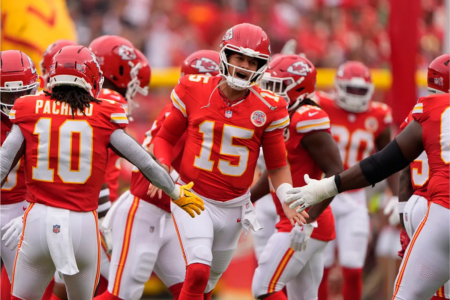Aaron Rodgers’ unexpected signing with the Pittsburgh Steelers has created a buzz across the NFL landscape, sparking mixed reactions from fans and analysts alike.
While the move adds a high-profile quarterback to Pittsburgh’s roster, Hall of Famer Dan Marino has raised some red flags about the potential pitfalls of the deal, emphasizing concerns about how Rodgers fits within the Steelers’ system and the timing of this career decision.
Rodgers, a four-time NFL MVP and one of the most skilled quarterbacks of his generation, inked a deal with the Steelers after an impressive yet tumultuous tenure with the Green Bay Packers.
Despite Rodgers’ undeniable talent, Marino expressed hesitation about whether this partnership would flourish, given the Steelers’ current offensive roster and Rodgers’ age.
Marino pointed out that a quarterback’s success often hinges on how well their skills align with the team’s offensive scheme: “I still think Aaron has some game,” Marino said this week on 93.7 The Fan.
“He can throw it as good as anybody that has ever thrown the football. If his mind’s into it and he’s ready to go and that works. I don’t think it would be an issue with the Steelers.
“But you gotta have someone that really wants to play there, and he’s getting older,” Marino continued. “So I don’t know what his mindset is. But he does still have talent.”
The challenge of transition and system fit
The Steelers have traditionally relied on a strong running game and a more vertical passing attack. Marino cautioned that adapting Rodgers’ game to Pittsburgh’s style might take longer than expected, especially since the Steelers’ receiving corps lacks the elite-level targets Rodgers previously had access to.
Another factor that concerns Marino is the potential impact on the development of the Steelers’ young quarterback prospects. “Bringing in a veteran like Rodgers could stall the growth of the younger guys on the roster,” Marino noted. This raises questions about the team’s long-term quarterback strategy and whether this move is designed to be a short-term fix or part of a larger rebuilding plan.
In addition to the system fit, Marino highlighted Rodgers’ recent injury history as a point of concern. As players age, recovery times lengthen, and durability becomes a bigger question mark. With the Steelers aiming to contend in a competitive AFC, relying on a quarterback with potential injury risks could be precarious.
Despite these concerns, Marino acknowledged Rodgers’ competitive nature and leadership qualities. He stated, “Aaron has that killer instinct and experience that can’t be taught. If anyone can overcome these hurdles, it’s him.” Marino believes that Rodgers’ drive and work ethic might help bridge some of the gaps the transition presents.
The Hall of Famer also addressed the pressure Rodgers will face stepping into a new environment with high expectations. Pittsburgh fans are hopeful that their new star quarterback will rejuvenate the team’s offense and return the franchise to its former glory.
The timing of the deal – signed just weeks before the season – adds an extra layer of difficulty for Rodgers. Marino explained that learning a new playbook and building chemistry with teammates in a short window is a significant challenge for any quarterback, especially one who is in the later stages of his career.
Marino’s assessment paints a realistic picture of Rodgers’ situation in Pittsburgh. While the talent is undeniably there, multiple factors could impact the success of this new chapter, including system fit, supporting cast, health, and the timing of the transition.
As the Steelers head into the season, all eyes will be on Rodgers to see if he can overcome these obstacles and lead the team to victory. Marino’s perspective offers valuable insight into the complexities behind this high-profile signing and serves as a reminder that even the greatest players face hurdles when changing teams late in their careers.
Read the full article here











